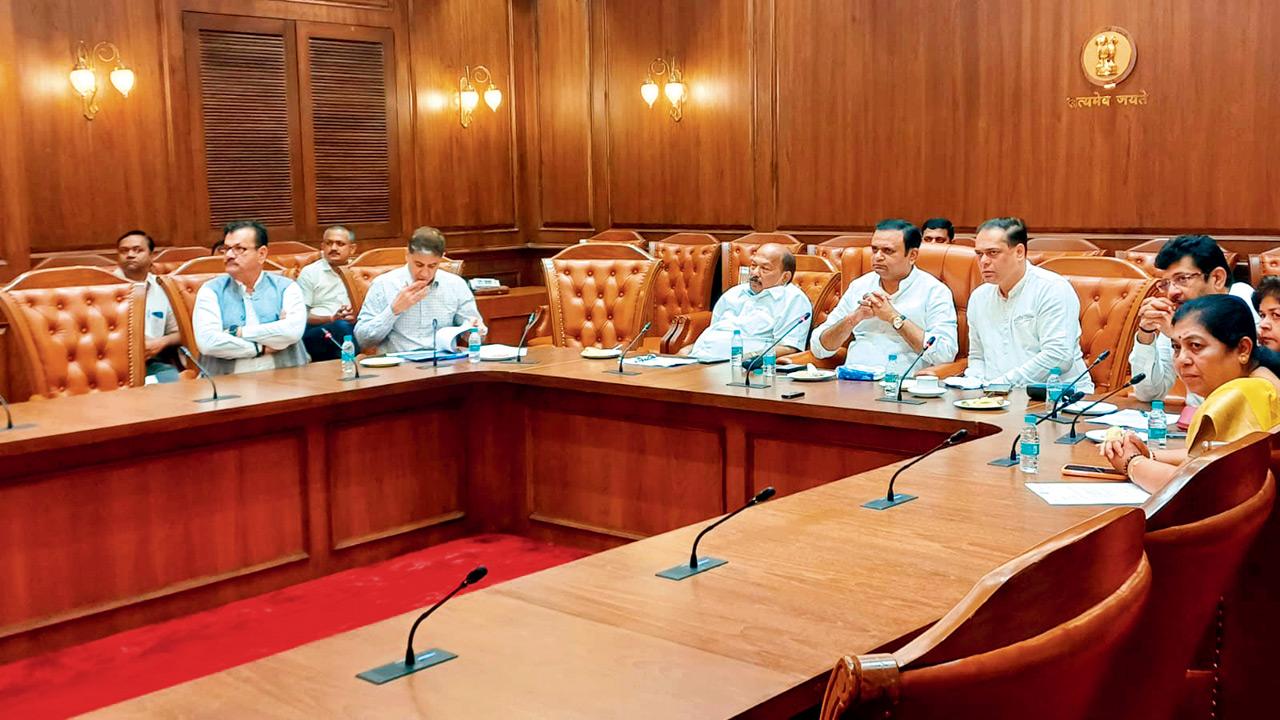
The Brihanmumbai Municipal Corporation (BMC) will now have to consult local public representatives before digging up roads. Maharashtra Legislative Assembly Speaker Rahul Narwekar instructed the civic administration not to dig up roads unless there is a specific local demand. “Local public representatives should be consulted before taking up the digging of roads,” Narwekar directed. The instructions were given to the BMC during a meeting convened by Narwekar in Mumbai on Friday.
mid-day has been highlighting issues like cracks on newly constructed roads, inferior quality of construction and huge potholes on roads, leading to traffic issues and posing a threat to life. The meeting was called after consistent follow-ups by BJP MLA Ameet Satam on issues related to roads and the inconvenience faced by citizens. Satam was recently appointed Mumbai unit chief of the party. Besides BJP MLAs, BMC Commissioner Bhushan Gagrani and other senior officials of the corporation were present.
Local public representatives will have to be consulted before the digging of roads is taken up. PIC/ATUL KAMBLE
In March, during the state legislative budget session in Mumbai, Satam had claimed that R21,000 crore had been spent between 1999 and 2022 on roads. “Despite spending such a huge amount, Mumbai citizens continue to suffer due to poor road quality,” Satam had said. He also called for a joint meeting of city MLAs and BMC officials to discuss the issue and find a long-term solution to the problem.
At the time, the BJP MLA from Andheri West Assembly constituency had demanded that roads 15 metres wide and wider be made of cement concrete, while the rest should be made using mastic asphalt. “The recommendation has been formally accepted by the BMC,” Satam said on Friday. Roads measuring less than nine metres in width will now be constructed using mastic asphalt.
During the meeting, Assembly Speaker Rahul Narwekar even instructed that the BMC take up pending road works in October and complete them by December.
According to Satam, the BMC has informed that 50 per cent of the total roads have been completed. “BMC will now create a zone-wise dashboard so that people can track the progress of the work,” Satam claimed, citing that the move is aimed at bringing in transparency and monitoring the progress of work.
Finally, the BMC was instructed to refer all complaints regarding substandard road work to the Indian Institute of Technology (IIT). “The IIT will conduct a technical evaluation and based on the findings, the BMC should initiate necessary action,” Satam added.
No more paver blocks for Mumbai footpaths
To make footpaths more durable, it was decided at the BMC meeting that, instead of paver blocks, stamped cement will be used to make footpaths. Experts and political leaders believe that after a certain period, paver blocks often become uneven, come loose or create gaps, which make it risky for pedestrians to walk on the surface. Also, blocks require frequent repair. Unlike paver blocks, stamped concrete provides a long-lasting surface that is safe to walk on. Also, the maintenance cost is much lower compared to paver blocks.
Rs 21,000 CR
Amount that could’ve been spent on city roads between 1999 and 2022


